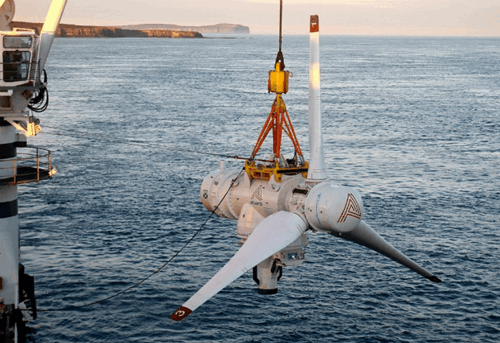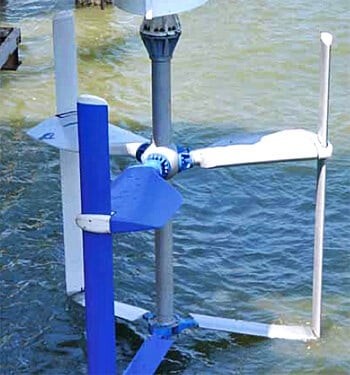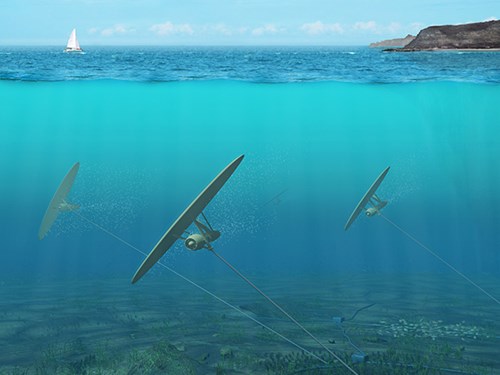2018 is an anniversary year for Lagersmit. Why? Because we have been active in the tidal energy market for 15 years now! It is something we are proud of as a company, yet we see that this industry is still very new to people. That is why we wrote this blog to give you more insight in the tidal energy market. Keep reading to find out more about the background, types of tidal turbines and how Lagersmit contributes to this energizing industry.
What is tidal energy?
To start off, we give a short explanation about tidal energy. The rotation of the earth with the gravitational pull of the sun and the moon cause the tides. Tides generate varying water levels near the shore that can rise up to 40 feet. The use of water movement goes many years back: more than 1,000 years ago people used tides to operate grain mills. Nowadays, we use tidal energy systems to generate electricity.
Different kinds of tidal power
There are several types of tidal energy systems that are used to generate electricity, such as tidal barrages, tidal fences and tidal turbines. We will give you a more detailed explanation about the tidal turbines.
Tidal turbines look similar to wind turbines and can be positioned on the sea bed where the tidal flow is strong. Water is about 800 times heavier than air and that is why tidal turbines have to be stronger than wind turbines. The construction of tidal turbines is more expensive than wind turbines, but tidal turbines generate more energy with the same size propellers.
Tidal turbines
Horizontal-axis turbines
Horizontal-axis turbines are most used and look quite similar to wind turbines. Not only the look is similar, but also the working principle is comparable. This type of turbine extracts energy from moving water in the same way as wind turbines extract energy from moving air. The propellers rotate around the horizontal axis with help of the tidal stream and this results in generating power.

Vertical-axis turbines
Vertical-axis turbines extract energy from the tidal stream in a similar way as horizontal-axis turbines do. However, as the name suggests, this turbine is placed on a vertical axis. A vertical-axis turbine always rotates in the same direction no matter which way the water flows.

Tidal kites
A tidal kite is attached to the sea floor and carries a turbine below the wing. The pushing water gives the tide a lifting force. The wing below the turbine in combination with the water flow, makes it fly forward. The turbine accelerates and starts to spin. The spinning of the turbine results in producing electricity.

Real story: Lagersmit's contribution to the MeyGen project
We have been specialized in tidal generation shaft seals since 2003. Due to our expertise in the tidal energy field, tidal turbine supplier Atlantis Resourses got in touch in order to develop a suitable sealing solution for their tidal turbines for the MeyGen project. Engineers from both companies formed one team, to go through the various design stages: from primary design until the finalization of the sealing solutions within the tidal turbine unit. After various design revisions and testing stages, we delivered and installed the Supreme TG-850 seals for Atlantis’ AR1500 Tidal generator unit in the beginning of 2016.
Atlantis Resources Corporation - “We are impressed by the quality of Lagersmit’s products. The dedication of its team and the professionalism that has been displayed in working with our technical team was excellent.”
More information
Our Supreme Tidal Generation shaft seal comes in two standard designs: a grease lubricated and a water lubricated system.
Read more about our Supreme Tidal Generation seal or contact us!


